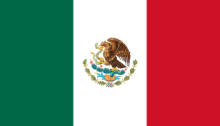
Fast, affordable Internet access for all.

"In Mexico we have a saying: 'don't ask to be breastfed!'" laughs local radio presenter, Keyla Ramirez. "We have the satisfaction of no longer having to ask them: 'Please, come and install a service for which we're going to pay you'."
One Mexican community is exercising its self-reliance muscle to create its own cell phone network. A recent BBC article introduced us to Talea de Castro, a small coffee-producing village in Oaxaca. Community members repeatedly appealed to Mexico's main cellular networks to install an antenna in their village.
America Movil and other large telecoms would only bring the service to the village if they installed electrical lines and new roads. Without those improvements, the trip was not worth the investment to the telco giants. Without the means to make the improvements, the small mountain community was without cell service.
Citizens decided cell phone service was a necessity so held a village meeting. Keyla Ramirez from the local radio station told the BBC:
"Communication. From the very start, that was our principle objective as a collective," she explains.
"Sometimes there might be an accident in the fields and, before, people couldn't let anyone know.
"They'd be cut off if the river was high or if they'd been bitten by a snake and couldn't make it back to the village. Now they can call their families and they'll come and help them."
Local radio personnel brought information to the meeting about cellular equipment the community could install themselves. With help from non-profit Rhizomatica and a US-based company, villagers installed the equipment and began the Talea Cellular Network. People of the village perform maintenance and keep the network live.
Calls and texts in the the village are free and calls outside the area cost significantly less than rates from the big telcos. Entrepreneurs use the network to boost business and families are no longer cut off from each other.
Word is spreading. From a San Diego Union-Tribune article on the network:
"The neighboring communities are interested in the project so the antennas can be linked in an autonomous community network," Villa Talea de Castro secretary Alejandro Lopez Canseco said in a telephone interview with Efe.
The town plans to acquire more equipment and provide the existing gear to another community, Lopez said.
Peter Bloom of Rhizomatica told the BBC:
"In the case of Mexico, the large providers don't see the Mexican countryside as being a viable option in terms of economics."
…
"We see other options. We use new technology, we try to take advantage of local structures and local capacity in order to provide equipment and services at a much lower cost."
While Ramiez touts the value of Talea de Castro's network as a way to keep citizens connected, she also revels in the community's ability to serve their own needs:
"This equipment belongs to the whole community. Now we can be autonomous, self-sufficient and self-reliant without having to ask to be breastfed by anyone!"
